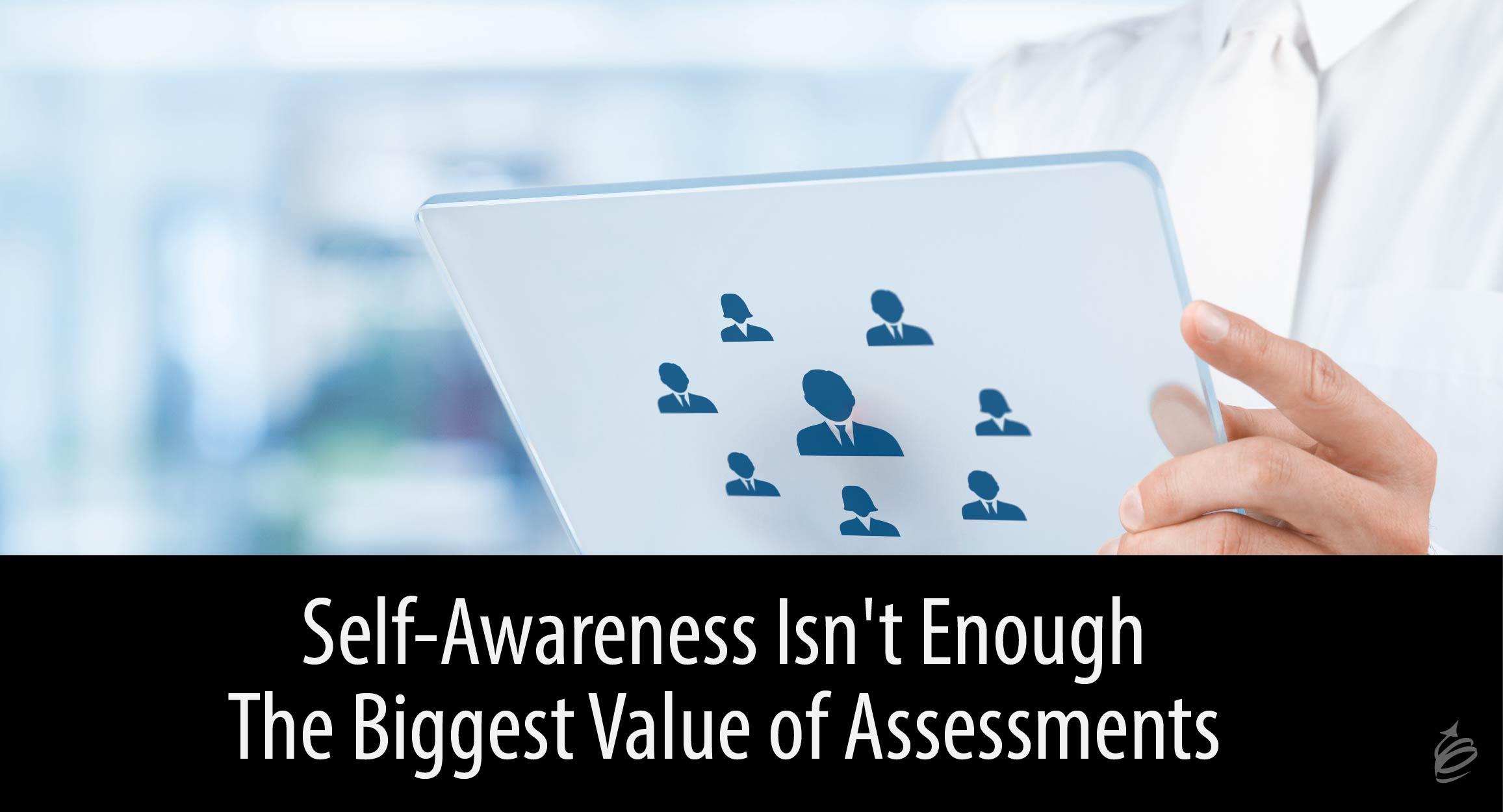Behavior assessments are everywhere. They are called different things, and measure everything from communication and learning style to creativity style to strengths and weaknesses. They help us see ourselves in new ways, and this is interesting and helpful. But if you are using assessments and stopping with self-awareness, you are missing the biggest – and too often hidden – value of assessments.
Most of these assessments are sold and implemented with the goal of raising self-awareness. Since it is well documented that humans aren’t very self-aware, it makes sense to create and apply instruments that help us see ourselves better, with the hope that this new awareness will help us be more effective.
Do they help?
Maybe.
But is there more to learn from them than about ourselves?
Most definitely.
Find the Hidden Value
The biggest value of any of these fine assessments is looking beyond ourselves. Here is what I mean.
Seeing patterns in behavior or skills. Assessments provide a model to show where we stand compared to others on a variety of factors. Beyond the self-awareness benefits, the model can help participants see the world and the behaviors of others in new ways. Armed with this knowledge, we now have the opportunity to respond in a more effective, healthy way, rather than judgmentally.
Valuing the contributions and strengths of others. Once we see the behaviors of others differently, we can value their strengths, learn from them, and engage them more effectively and intentionally in ways that leverage those strengths. This can create an upward spiral of respect and trust among team members, or even in the relationship of an individual armed with some new insights.
Adjusting our approach to work with others better. People often use assessment results as justification of their own behavior, now that they understand and have a label for it. (i.e. “I’m a <insert label from the assessment>, so that is just how I am.”) More value comes from understanding the style of others and then adjusting to communicate and understand better, rather than justifying our own behavior. The assessment’s model can provide tremendous opportunities for improvement in relationships and results if people are willing and able to flex and adjust, rather than label or justify.
How to Get These Benefits
These benefits can come from whatever assessment you are using, but only if you know to look for them. While any individual can gain these benefits, if you are using an assessment across a team or organization, there are several things you can do.
Adjust the training goals. Share this article with your training department or your consultant. Have a conversation with them about these ideas and possibly adjusting the training plan to include some of them.
Provide more time. You won’t likely reach these additional goals in the same time allotted for the delivery of the assessment. If these benefits matter, you will need to invest time for the group to gain deeper understanding of the assessment’s model, and then discuss the ideas and applications as a group.
Provide more information. Most all assessments have more in-depth materials that will help individuals and group gain some of these additional benefits. Offer those tools and resources to team members, even if just for those who want deeper knowledge. Oh, and encourage people to read and understand the materials they get with their assessment report. Likely there is much richness there, and you can’t discuss every detail in the group training environment.
Make it part of your culture. If you are investing in your team or organization with an assessment, continue the conversation beyond the training or delivery of the assessment. Otherwise, these benefits will be short-lived, if achieved at all.
Consider coaching. If you use external coaches, arm them with the tools of the assessment as well, so they can use them in their coaching. This will bring additional value to the assessment investment and will help integrate the assessment model into your organization.
Final Thoughts
This advice applies to most any assessment I have encountered. This is the advice we try to follow with our clients when they implement the DISC assessment within their organizations. While there are many fine DISC assessments, when you work with us using ours, we strive to help you gain these additional benefits.
You can take a free assessment, or upgrade to the full assessment with the premium personal report for $29 (discounts are available on group purchases). Take a free assessment here and contact us if you want to talk about how we can help you get these additional benefits from your assessments.


0 comments